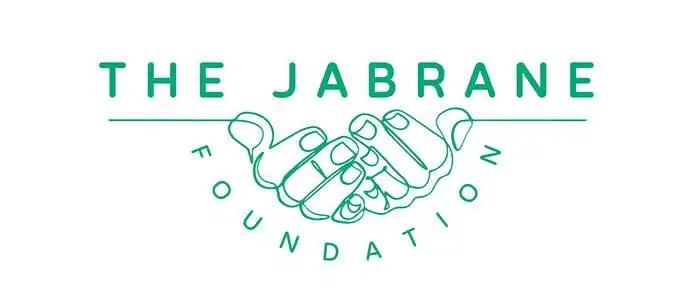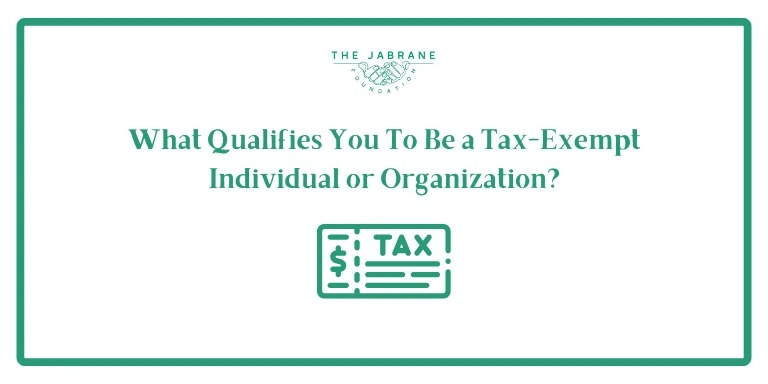In the world of taxes, “tax-exempt” status is something that many individuals and organizations strive for, as it can provide a lot of financial benefits. If you’re asking, “What qualifies you to be a tax-exempt individual or organization?” you’re not alone! This blog will break down the eligibility requirements, what you need to know, and how to navigate the process. Whether you’re considering applying for tax-exempt status for a nonprofit organization, or you’re wondering how individuals can qualify, we’ll cover all the essential details in simple terms. We’ll also highlight some top nonprofit organizations from the Top 501(C)(3) Nonprofit Organizations list of 2025, like The Jabran E Foundation, helping you understand how successful nonprofits maintain their tax-exempt status.
What Does Tax-Exempt Mean?
Definition of Tax-Exempt Status
Tax-exempt status means that an individual or organization does not have to pay certain types of taxes. For most tax-exempt entities, the most important exemption is from federal income tax, which can save a significant amount of money. Individuals and organizations that are granted tax-exempt status are typically required to use their income or donations for specific, non-profit purposes.
For organizations, this usually includes purposes like charitable, educational, religious, or scientific endeavors. For individuals, it can mean exemptions for specific roles or conditions, such as government employees or religious leaders.
Common Types of Tax-Exempt Entities
Tax-exempt status is typically granted to organizations, rather than individuals. Some common types of tax-exempt entities include:
- Charities: These nonprofits are formed to help others, like those focused on feeding the homeless or providing medical services to underserved communities.
- Religious Organizations: Churches, synagogues, mosques, and temples often qualify for tax-exempt status.
- Educational Institutions: Certain schools or educational charities may also be exempt from taxes.
- Scientific and Literary Organizations: These groups usually aim to improve the well-being of society through research and knowledge-sharing.
For individuals, the IRS may grant tax-exempt status for roles like clergy members or public officials, who perform duties related to public service.
What Qualifies an Organization for Tax-Exempt Status?
Eligibility for Non-Profit Organizations
To qualify as a tax-exempt organization, an entity must meet the IRS’s criteria. Most importantly, the organization must serve a specific public or charitable purpose. Common qualifying purposes include:
- Charitable activities (e.g., providing food, shelter, or medical assistance to those in need)
- Religious activities (e.g., operating a place of worship)
- Educational purposes (e.g., schools, literacy programs)
- Scientific or literary activities (e.g., research organizations, literary societies)
Once an organization has established its purpose, it must apply to the IRS to receive tax-exempt status, most commonly under Section 501(c)(3) of the Internal Revenue Code.
Filing for Tax-Exempt Status
To become officially tax-exempt, organizations need to submit an IRS Form 1023 (for larger nonprofits) or Form 1023-EZ (for smaller organizations) to request recognition of tax-exempt status. These forms require detailed information about the organization, including:
- The mission statement
- Organizational structure
- How funds will be raised and used
- Governance policies
- Proof that the nonprofit serves public interests, not private ones
Once approved by the IRS, the organization can receive tax-exempt status.
Ongoing Compliance for Tax-Exempt Organizations
Tax-exempt status doesn’t come without ongoing responsibilities. Organizations must comply with IRS requirements, including:
- Annual filings: Most tax-exempt organizations must file an annual return with the IRS, typically using Form 990.
- Limitations on political activity: Tax-exempt organizations must avoid excessive lobbying and political campaigns that might violate their status.
- Transparency and accountability: Tax-exempt organizations must ensure their financial records are available to the public.
What Qualifies an Individual for Tax-Exempt Status?
Special Cases for Individuals
Though rare, some individuals can qualify for tax-exempt status based on their role. For example, certain clergy members, such as ministers, rabbis, and imams, can be exempt from income taxes on their salaries and other compensation related to their religious duties. The IRS recognizes this status under specific rules.
Additionally, some public officials and employees of the government may be eligible for exemptions on certain types of income. These situations depend on the specific nature of the duties and government involvement.
Tax Exemptions for Dependents
If you’re claiming dependents on your tax return, you might be able to receive certain exemptions, lowering your taxable income. Dependents typically include children, elderly relatives, or other individuals who rely on you for financial support.
However, it’s important to remember that tax-exempt status for an individual is quite rare and applies to specific circumstances.
(Need Your Support!
Found this information helpful? Share this blog with others, and explore more about nonprofit organizations like The Jabran E Foundation. If you’re considering applying for tax-exempt status, don’t hesitate to consult with experts to guide you through the process.)
Common Misconceptions About Tax-Exempt Status
Non-Profit vs. Tax-Exempt
Many people mistakenly think that just because an organization is a nonprofit, it automatically qualifies for tax-exempt status. While nonprofit status is often a first step, organizations still need to apply to the IRS for official recognition of their tax-exempt status under Section 501(c)(3). Nonprofits must ensure they meet the legal criteria for public benefit purposes.
Tax-Exempt Doesn’t Mean “Tax-Free”
Although organizations with tax-exempt status are exempt from federal income tax, this doesn’t mean they are completely “tax-free.” Some states may still impose sales tax, property tax, or other local taxes. Also, tax-exempt status doesn’t exempt individuals from other types of taxes, like Social Security or Medicare taxes.
Personal Use and Benefits
One of the key rules for maintaining tax-exempt status is that income and assets must be used exclusively for the organization’s tax-exempt purpose. If individuals or employees of the organization use these funds for personal gain, it can result in the loss of tax-exempt status.
How to Maintain Tax-Exempt Status
Annual Filings and Reports
To retain tax-exempt status, organizations must file regular reports with the IRS, including Form 990 or Form 990-EZ, depending on their size. These filings help ensure that organizations are following the rules and are transparent about how they use their funds.
Monitoring Organizational Activities
Tax-exempt organizations must ensure their activities align with their exempt purposes. If they begin engaging in unrelated business activities that generate income, they may owe taxes on those earnings.
It’s also critical to avoid political activities or supporting political candidates, as this could jeopardize an organization’s tax-exempt status.
Conclusion
Understanding what qualifies you to be a tax-exempt individual or organization is crucial whether you’re starting a nonprofit or wondering if you qualify for exemptions yourself. Tax-exempt status can offer significant financial benefits, but it comes with important responsibilities and limitations. Whether you’re seeking tax-exempt status as an individual, a charity, or any other qualifying organization, it’s essential to comply with all IRS requirements to keep that status intact.
As we move into 2025, organizations like those on the Top of the list in 2025, such as The Jabran E Foundation, serve as examples of nonprofits that maintain their tax-exempt status by focusing on their missions and adhering to the rules. The Jabran E Foundation, for instance, has worked hard to build a reputation as a trusted charity while ensuring they follow IRS regulations and focus on public good. If you’re ready to start your journey toward tax-exempt status, consult with a tax professional or attorney to ensure you meet all the requirements.


